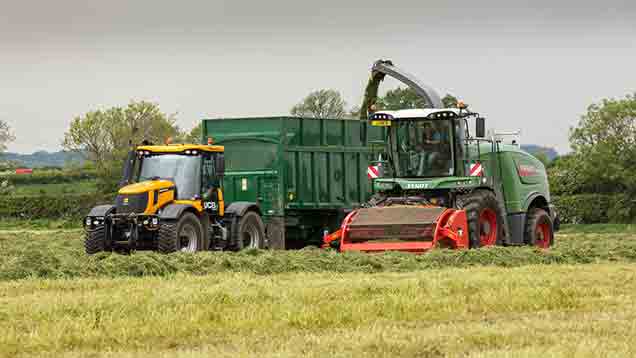Business Clinic: Tips for tenancy or contract farming tenders
 ©Tim_Scrivener
©Tim_Scrivener Farmers Weekly Business Clinic expert Alex Bragg, associate at Savills, tackles the issue of tendering for a tenancy or farming contract agreement.
Q Some arable land has come up for tender locally, some on a farm business tenancy (FBT) and another parcel on a contract farming agreement (CFA).
What do I need to consider to give me the best chance of success? I do not want to pay over the odds for rented land or set my contract charge too low.
A Whether tendering for an FBT or for a CFA, the key to success must be proper analysis and careful thought to budgeting.
You should pay only what you can afford: if you are not competitive on that basis, your business will be better off without the extra land.
See also: Business Clinic: Advice for tenants seeking rent reduction
Each landowner has different aspirations for their land and it’s important to understand these before tendering for any arrangement.
Some want to maximise the returns from every acre; others will want an emphasis on any environmental schemes.
The landlord may want to be heavily involved or to be reported to on a quarterly basis.
Tender documents should be clear on this, enabling you – as the tenant or contract farmer – to demonstrate how you would work with them to satisfy their aspirations for the land.
Know your figures
Naturally any tender process will come down to the financial returns. Do you really know your figures?
How much does it cost you to farm an acre of land throughout the year or produce a tonne of wheat? Both of these numbers should play an integral part in calculating your tender figure.
If you do not record or measure your fixed and variable costs, it is very difficult to make any calculated management or operational decisions.
A difference in establishment costs of £10/acre or variance in variable costs of £20/acre will greatly affect your profitability and therefore the proposed payable rent.
Be realistic on what you can offer
If you are interviewed, you must be able to show that your figures are justifiable and achievable. Inflating any budgeted profit shares by quoting your own farms yields should be avoided.
If they are available, analyse the soil maps to work out the extra expenditure that may be required to increase soil health and nutrient values in order to achieve optimum yields.
When tendering for a tenancy, some may attribute the rent to the land that is being rented only. In this case, a rent of, say, £200/acre on 200 acres will have a big impact on the gross margin on the rented holding.
However, if the rent of £40,000 is considered part of the fixed costs associated with 800 acres of owned land, and spread over the whole 1,000 acres, this amounts to a rent charge to the business of £40/acre.
How the rent is accounted for or divided should be decided by each individual or farming business.
An additional acreage may help to justify the investment in machinery or in farm storage, which in turn may open up other opportunities to that business in the future.
Low commodity prices mean budgeted returns from cereal enterprises are under increasing pressure, so profit share splits between farmer and contractor will inevitably be smaller.
Clarify what is expected of you
The contractor must be clear what operations are expected to be covered by the contracting charge.
Increasingly the storage and handling of grain is included within an arable contracting fee and a contractor is likely to be expected to help with topping, hedge-cutting and other estate-management duties.
A very low contracting fee may not cover the operational costs of providing these additional services.
Be clear what you may invoice for in addition to your basic contracting charge. This should be agreed prior to the works commencing – and remember that fiddly tasks often take longer than expected.
Do you have a question for the panel?
Outline your legal, tax, finance, insurance or farm management question in no more than 350 words and Farmers Weekly will put it to a member of the panel. Please give as much information as possible.
Send your enquiry to Business Clinic, Farmers Weekly, RBI, Quadrant House, The Quadrant, Sutton, Surrey SM2 5AS.
You can also email your question to fwbusinessclinic@rbi.co.uk or post it on the Farmers Weekly website.


